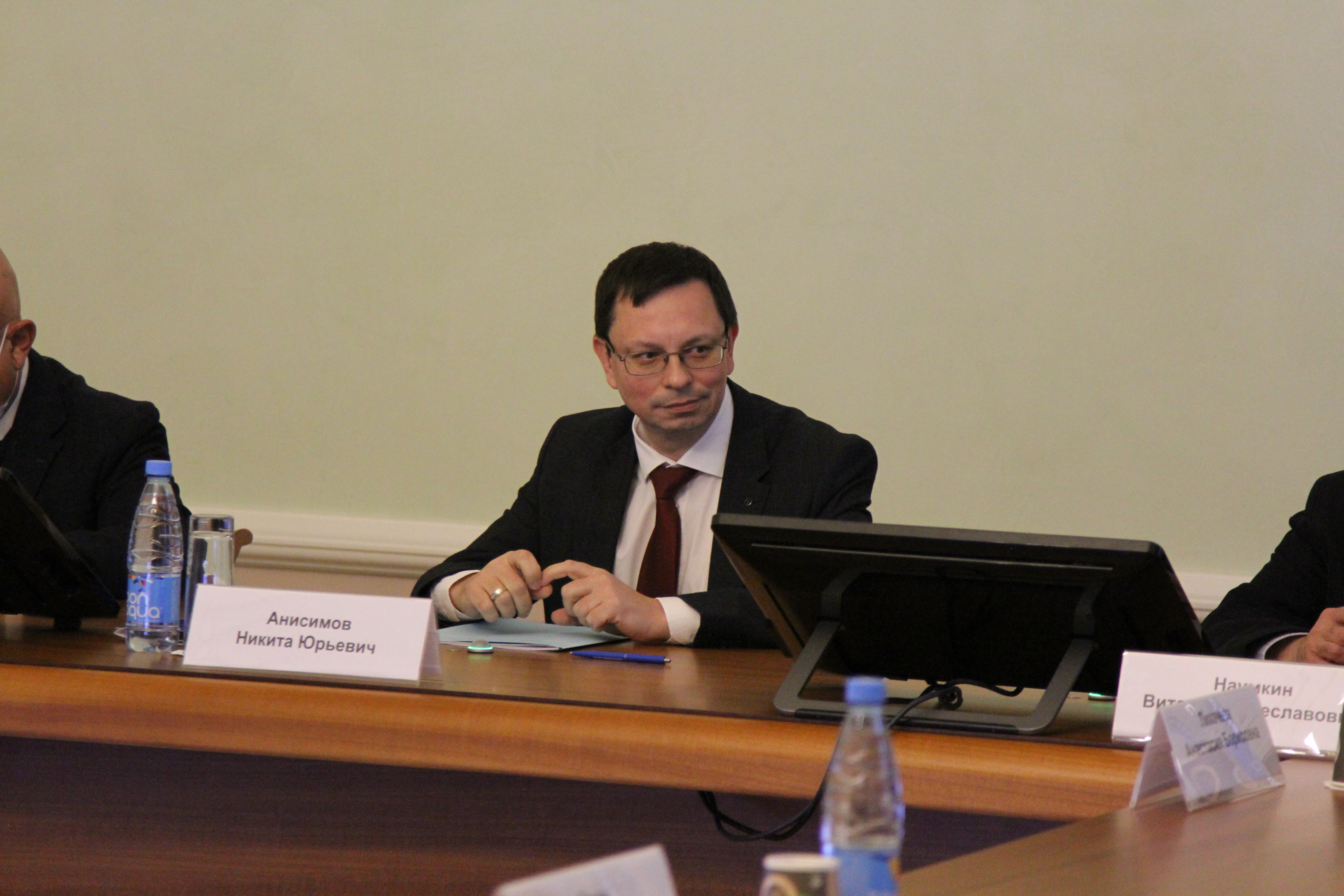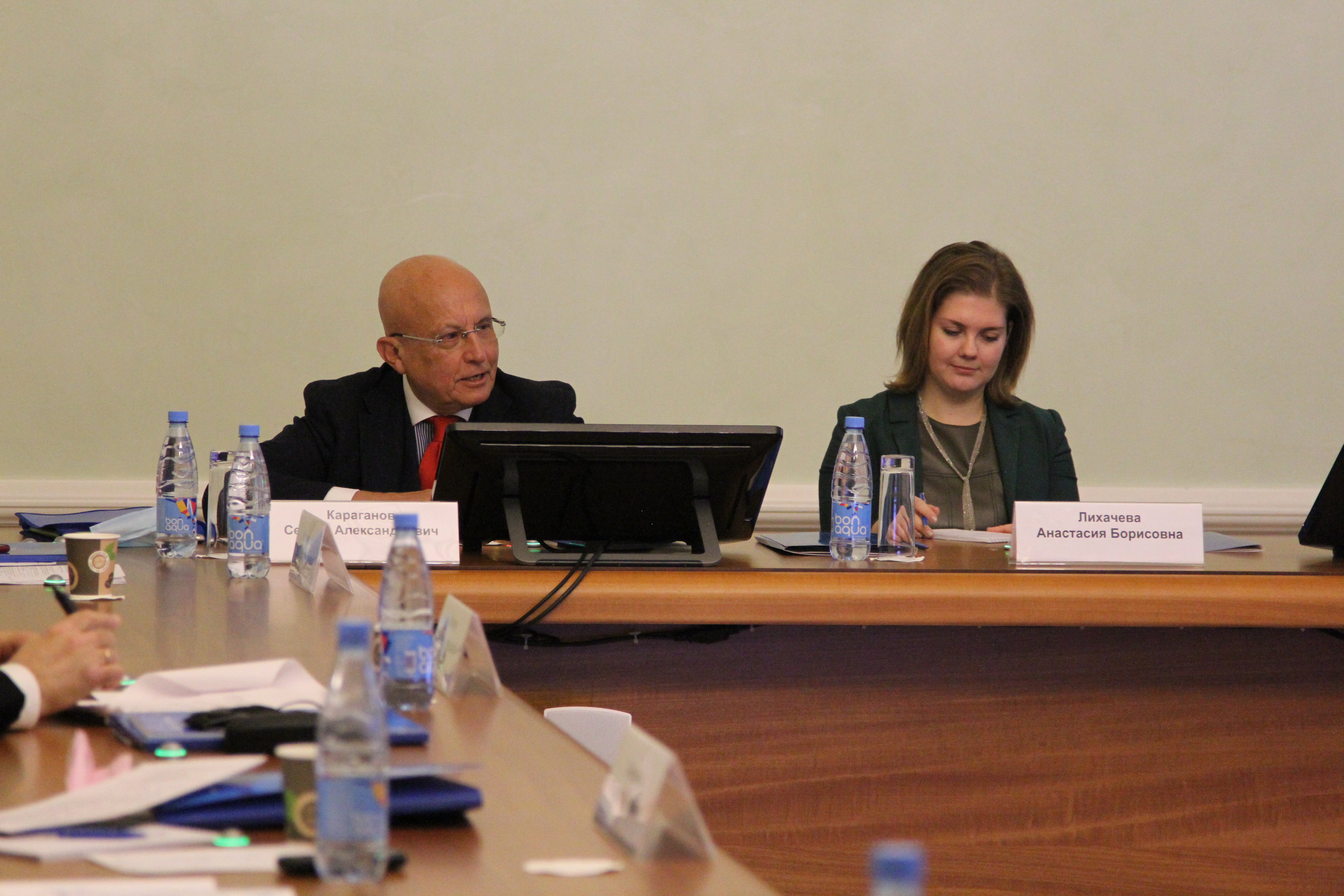- A
- A
- A
- ABC
- ABC
- ABC
- А
- А
- А
- А
- А
- HSE University
- Faculty of World Economy and International Affairs
- School of International Regional Studies
- News
- East and West at the Stage of New Transformations: the Post-Covid Changes
-
School
-
Online
The School of International Regional Studies is a research and educational centre seeking to revive international regional studies as an academic discipline in Russia. The department’s world-class professors train the next generation of regional studies specialists while developing an increasingly prestigious research school.
Likhacheva A., Strelnikova I., Kharina O. et al.
M.: CCEIS of HSE University, 2024.
Strelnikova I., Chistikov M., Shuranova A.
Russia in Global Affairs. 2025. Vol. 23. No. 2. P. 23-37.
Kanaev E., Fedorovskiy A., Kupriyanov A. et al.
In bk.: Russia and the World: 2024. Economy and Foreign Policy. Annual Forecast. IMEMO RAN, 2024. P. 105-111.
Shein S., Ryzhkin E.
Political Science. PS. Высшая школа экономики, 2022. No. 89.

East and West at the Stage of New Transformations: the Post-Covid Changes
Researchers, diplomats, and experts representing leading educational centers and think tanks from ten countries discussed political, economic, and social transformations of various countries and regions during the III International Conference “East and West at the Stage of New Transformations: THE Post-COVID Changes”.
Opening the Plenary Session, the Rector of the HSE University Dr. Nikita Anisimov stressed that the University traditionally provides experts from Russia, as well as from European and Asian countries, with an open discussion platform for making strategic recommendations. The reality of the pandemic in which we live raises new questions on inter-state relations, on the technological preparedness of humankind for responding to the emerging challenges, the results of which have been unfortunate so far. The Rector pointed to another issue, specifically, whether or not inter-state relations are disadvantageous for humankind, which is encountering a challenge of controversy produced by the states.
Dr. Nikita Anisimov also reminded of the President of Russia’s remark during the AI Conference, specifically, that we live in an era, in which digitalization is no longer a technological revolution, but a technological reality. We should discuss how to bring up a new generation of young people who will be aware of this reality. All this is impossible without exploring inter-state relations. We should be able to hear one another and use a common language from a technological and communicational perspective. It is especially gratifying that the Faculty of World Economy and International Affairs organizes a venue for relevant discussions, while the conference itself has become a recurring event. The task that the diplomats and the experts need to resolve during the conference is to create a synergy of the views expressed.

According to Dr. Vera Vishnyakova, the co-moderator of the Plenary Session, the COVID-19 has been a global reality for a year and a half. A greater part of contacts between Russia and its Western and Eastern partners has moved online, but owing to IT achievements, business, academic, educational and personal exchanges continue.
Data is considered new oil, which is great!
But is there any global actor that has started to export digital or Big Data resources?
When will these resources be commercialized and traded in the Eastern and Western digital stock exchanges?
How will they bring countries and peoples closer together, hedging risks in traditional product markets?
In the meantime, we are witnessing a serious energy crisis that happened amidst Europe’s transition to the Green Deal, to the decarbonized energy and heat generation, failures in China’s and India’s coal supplies to Eastern and Western countries that actively joined the decarbonization race. We see a decline in the production of electronics and the automobile industry due to a crisis in the supply of electronic components.
As Dr. Sergey Karaganov, Academic Supervisor of the Faculty of World Economy and International Affairs, HSE University, observed, society is facing an era of de-globalization that is taking place across nearly all directions. In addition, society is searching for new ways of globalization and cooperation. The stage of globalization that we are leaving behind has destroyed the fundamentals of humankind. Experts and politicians must elaborate on a strategy for further development. In the near future, the de-globalization process will affect the economic sphere. Accounting for a seven-year recession in world trade, it is clear that value chains will not recover. In parallel, the localization trends in the contemporary world, which have not been properly assessed to date, will exert a profound impact on the East and the West, including changes in political systems or a temporary decrease in the extent of democratic governance of many states. The time for change has come.
Dr. Anastasia Likhacheva, Dean of the Faculty of World Economy and International Affairs, HSE University, emphasized that at the time of the ongoing changes, it is especially important to explore the pressing threats. Special attention must be paid to the green growth and water agendas, especially since these issues are outside debates between Russia and its Asian partners.

Dr. Vitaly Naumkin, Academician of the Russian Academy of Sciences, Academic Supervisor of the Institute of Oriental Studies of the Russian Academy of Sciences, Head of the Joint Department of the Institute of Oriental Studies of the Russian Academy of Sciences explored the COVID-19 and the likely post-COVID-19 time. The COVID-19 pandemic is part of the Third World War, this time between humans and nature. The pandemic exemplifies globalization, and among its advantages, a large-scale digitalization that results in considerable technological progress deserves mentioning. Dr. Vitaly Naumkin outlined the main problems of the near future that humankind does not take seriously: a pollution of outer space, a transfer of the arms race to outer space, a militarization of cyberspace.
Professor at the University of Tehran, head of the Center for the Study of Iran and Eurasia (Iran) Dr. Mehdi Sanai reviewed a special role of the media in covering the events of the pandemic, pointing to an excessive escalation of tensions.
Dr. Zhao Huasheng, Professor at the Institute of International Studies, Fudan University (China), invited by the co-moderator of the conference, head of School of Asian Studies, HSE University, Andrey Karneev, warned against forgetting identity, national and universal human interests of different countries, respect for diversity amidst a necessity to build up and develop inter-state relations.
According to Dr. Robert Legvold, Professor in the Department of Political Science at Columbia University, Director of the Euro-Atlantic Security Initiatives (USA), we live in the era of two Cold Wars, which differ in their objectives. The present struggle, in which the US, China, and Russia are involved, is not for ideological values but markets and strategic advantages.
The high level of the discussions was ensured by the professionalism of their participants and the inspirational ideas expressed. Questions focusing on how countries and regions responded to the challenges of COVID-19, as well as what Russia must do to take a leading place in the world in the current circumstances, were raised and discussed.
The digital transformation of business processes and commercial operations in a completely new reality will result in a gap between various countries and boost competition among them. The leaders will be those actors that have already started this complicated process. In China, for instance, the business processes of large seaports have been digitized, the AI has been synchronized with the management procedures. In Europe, to enter the digital era, a roadmap has been charted, and the intention to implement it is substantiated by investments and legislative acts.
We live amidst constant transformations and constant implementation of advanced systems that will incentivize people and states to react quickly and to adapt to the changing reality.
- About
- About
- Key Figures & Facts
- Sustainability at HSE University
- Faculties & Departments
- International Partnerships
- Faculty & Staff
- HSE Buildings
- Public Enquiries
- Studies
- Admissions
- Programme Catalogue
- Undergraduate
- Graduate
- Exchange Programmes
- Summer Schools
- Semester in Moscow
- Business Internship
-
https://elearning.hse.ru/en/mooc/
Massive Open Online Courses
-
https://www.hse.ru/en/visual/
HSE Site for the Visually Impaired
-
http://5top100.com/
Russian Academic Excellence Project 5-100
- © HSE University 1993–2025 Contacts Copyright Privacy Policy Site Map
- Edit



